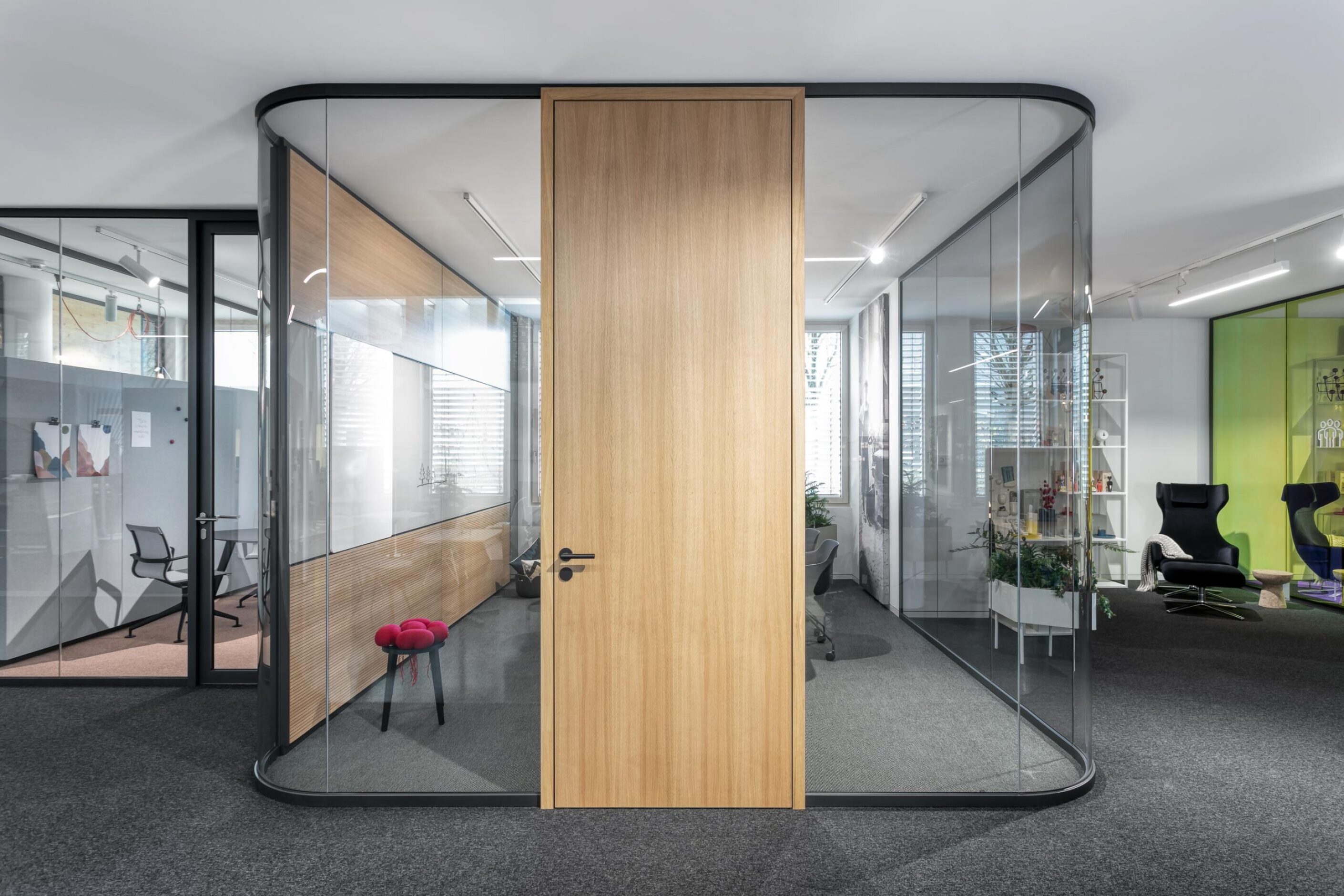The ErlebnisReich in the feco-forum
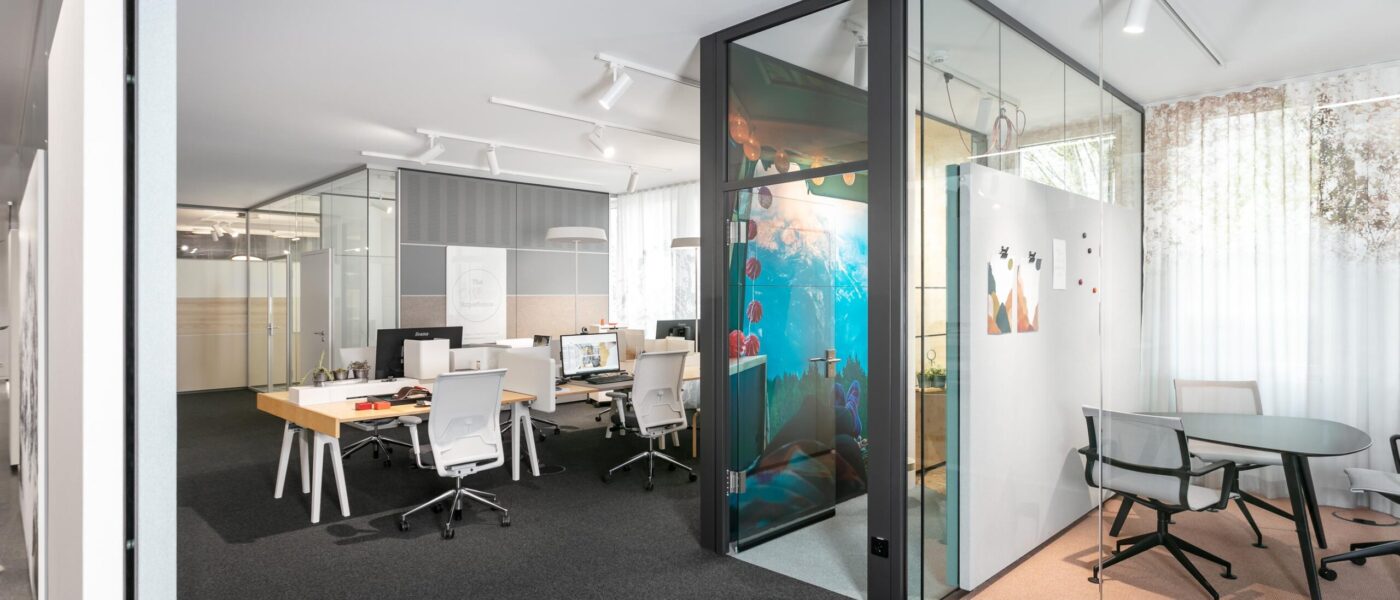
The world of work has been undergoing radical change for a long time. In recent years, the New Work movement has prompted many companies to consider what this means for their own offices. In the spring of 2020, the onset of the Corona pandemic brought this change process back into scrutiny.
Given the new popularity and surprising success of the home office, entrepreneurs and work experts around the world are now asking: Will we even need an office in the future? It is clear that the pandemic has changed our view of the topic, but our view should encompass more than just its effect. After all, even before the spread of the Corona virus, there were clear signs that things were moving in the direction of mobile working and flexible office design.
So the question remains: How will we work in the future? As office experts, this is a question we focus on a great deal. And we have set out to bring our own vision of the office of the future into the present – as the user-centred “ErlebnisReich” work landscape in our feco-forum.
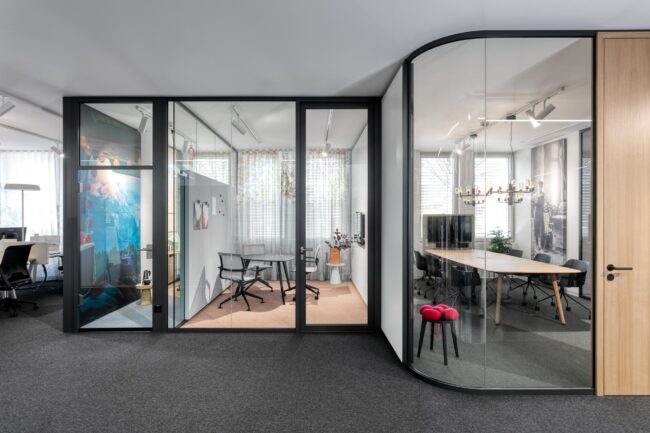
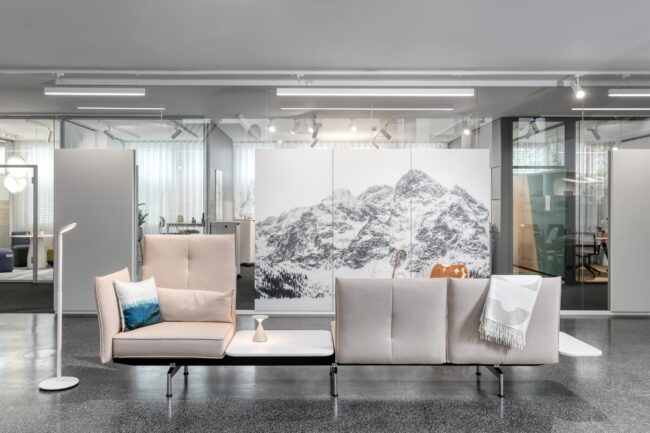
Innovation needs space
For a long time, home offices were viewed negatively. Allowing employees to work from home meant supervisors had to relinquish control and instead rely on personal responsibility. The company office therefore remained the preferred and more recognised place of work.
With the first lockdown, this view changed abruptly in many places. In fact, for many employees, being able to work undisturbed in their own homes actually improved productivity. Slowly, the realisation is catching on that the office-based presence culture is being replaced by the results culture.
However, despite or perhaps because of the home-office experience, the majority of employees still prefer the shared office as their primary place of work (IBA). This is because even modern communication technologies cannot permanently replace the interpersonal exchange that is needed for emotional cohesion and fruitful cooperation.
And the numbers speak for themselves: 85 percent of all major innovations are the result of personal dialogue (IBA). Innovations therefore need interactions – and the space for them. Digital and personal interaction are not contradictory, but rather two sides of the same coin.
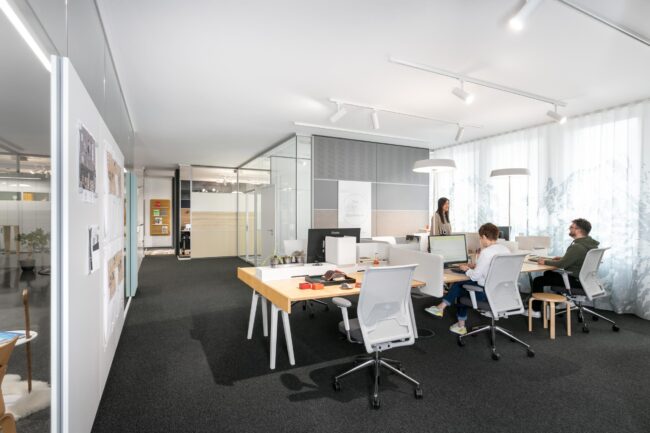
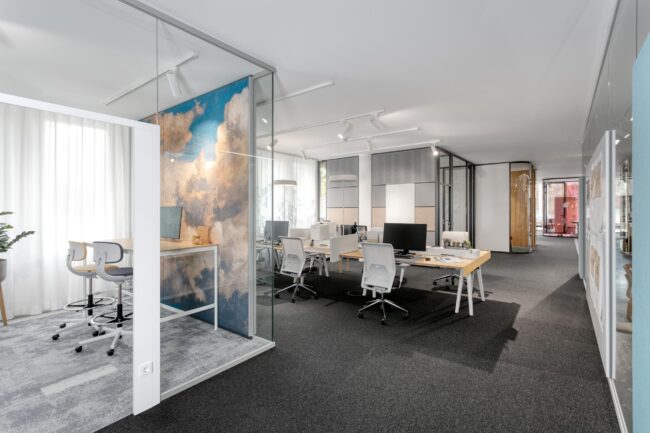
The office as a space for experience
The office of tomorrow is not about replacing workspaces or reducing space. For trend expert Birgit Gebhardt, the challenge is rather to develop them into interaction spaces – places where encounters with each other and with all the senses can take place. To this end, in her study “New Work Order” she draws parallels with the ecosystem of a village.
In the future more than ever we will need workspaces that do not simply provide us with areas for working and learning. Instead, we will need productive spaces with the human factor. Working environments that are deliberately designed in such a varied way that they stimulate our senses. In short, we will need experiential spaces.
The interaction between people and space plays a central role in this, because home offices have made it clear how much a homely environment in which we feel comfortable contributes to the quality of our work. With the right furnishings, this well-being effect can also be transferred to office environments.
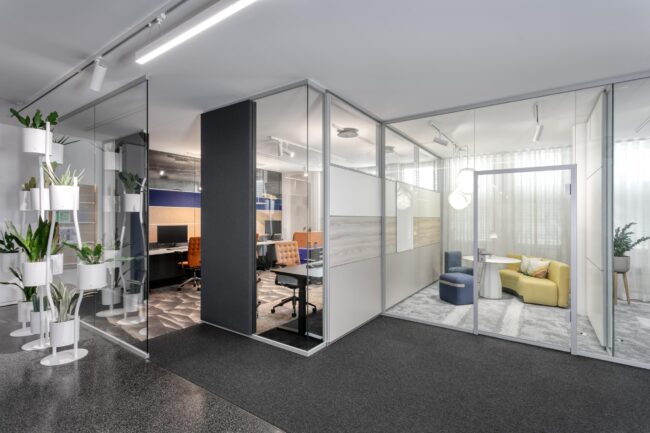
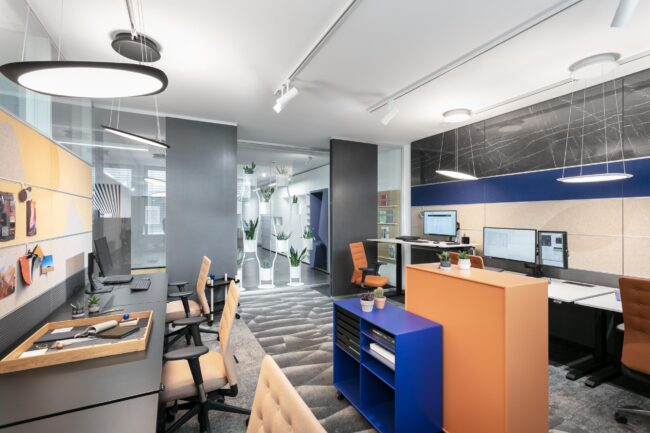
The ErlebnisReich: A hybrid working environment for every requirement
Future-proof office spaces offer their users freedom. Moreover, they become a stage for them. If the interplay between home and office-based work is successful, the result is ideal environments for agile working.
It is based on this model that we also developed our vision for the ErlebnisReich in the feco-forum: a hybrid working environment with experience and amenity quality, and with rooms and room zones without fixed seating or functions. Rather, they leave the responsibility to their users to assign the appropriate function depending on the activity: concentration, co-creation, teamwork, meeting, communication or community.
The room types available are as varied as the tasks. All six room zones in the ErlebnisReich are different. Room size, surfaces, materials, furniture – each zone has been individually designed and equipped and is thus able to be flexibly adapted to changing requirements.
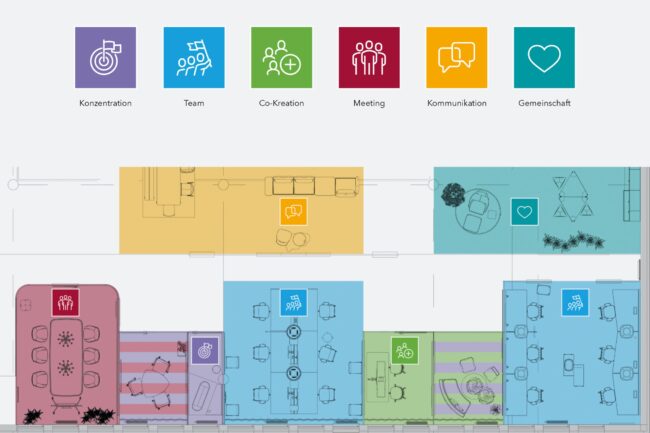
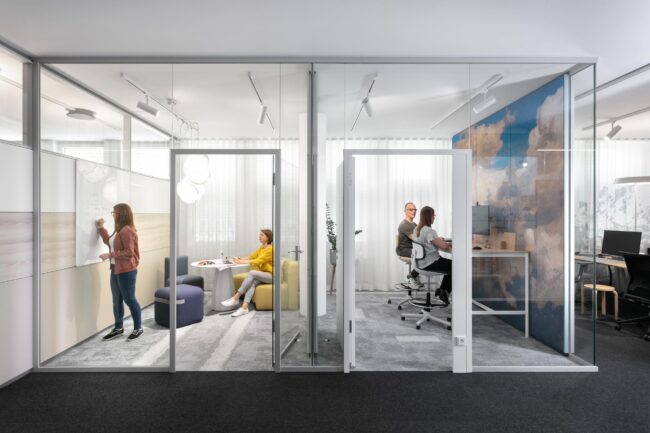
New area perspectives
A flexible room design does not mean that more space is needed. Quite the opposite, a user-centric layout can even result in a more efficient use of space. The ErlebnisReich is based on a typical office layout with 1.35 m gridlines. The special layout with feco partition walls pushes the boundaries of what has been usual up to now.
Where conventional offices would create 12 workstations in six double offices on this space, our ErlebnisReich distributes them over two large team areas with six workstations each. In addition, five further rooms for individual, tandem and team work have been created.
This shows that making an office fit for the future does not require new premises, but a new perspective. With an adaptable room concept and the right partition walls, any office can therefore be transformed into an agile working environment.
Are you curious about what the working world of tomorrow will feel like? If so, visit us in our new ErlebnisReich in the feco-forum and let us inspire you!
We are at your service.

We are at your service.
Visit us in the feco-forum on more than 3.500 square meters.
Arrange a consultation